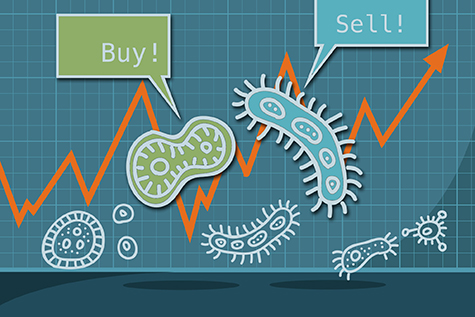wustl | The idea that people make calculated decisions that allow them to
obtain the most goods with the smallest amount of effort — a complex
hypothesis called ‘economic man’ for short — often has been challenged.
People sometimes make irrational decisions, they rarely possess
sufficient information to make the best decision, and they sometimes act
against their own economic self-interest, critics say.
But none of these critiques is as radical as the one advanced in the Jan. 13 online issue of Proceedings of the National Academy of Sciences (PNAS).
Written by an international team of researchers, it was inspired by a
workshop on biological markets (transactions in which partners,
typically animals, exchange commodities for their mutual benefit) held
at the Lorentz Center of the University of Leiden in The Netherlands in
January. (Visit here for the agenda.)
The scientists asked themselves how far biological market theory,
which has been used successfully to explain cooperative behavior in many
species, could be extended. Could it be used to describe, for example,
the exchange of commodities between organisms without any cognitive
ability, such as microbes?
They could think of instances where single-celled organisms had been
shown to avoid bad trading partners, build local business ties,
diversify or specialize in a particular commodity, save for a rainy day,
eliminate the competition and otherwise behave in ways that seem to
follow market-based principles.
They concluded not only that microbes are economic actors, but also
that microbial markets can be useful systems for testing questions about
biological markets in general, such as the evolution of partner choice,
responses to price fluctuations and the identification of market
conditions that drive diversification or specialization.
They even foresee practical applications of the work. It might be
possible, for example, to manipulate ‘market conditions’ in crop fields
to drive nitrogen-fixing bacteria to trade more of their commodity (a
biologically available form of nitrogen) with crop plants.
“Creative insights are often easier when theories from one field are
explored in a different system as we do here, applying economic concepts
to microbial interactions,” said Joan Strassmann, PhD, the Charles
Rebstock Professor of Biology in Arts & Sciences at Washington
University in St. Louis, who participated in the workshop and helped write the PNAS paper.
“The microscopic nature of microbial systems means it is easy to
misunderstand their interactions; an economic framework helps us focus
on what is important,” said David Queller, PhD, the Spencer T. Olin
Professor of Biology, another of the brainstorming scientists.



0 comments:
Post a Comment